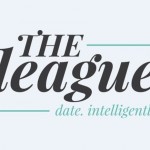You must have seen background checks being commonly used for recruitment and other professional decisions – this is socially acceptable. But when it comes to people we choose to marry, we still rely on a qualitative “yes, the boy is from a good family” or an “I’ve seen the boy grow up since the time he was a child” to make a decision. Sometimes, more cannot be done because it is not socially accepted behavior, and sometimes some information about the person’s family is obtained secretively through common friends. But not much is known about the person himself/herself. This is especially true in the case of arranged marriages, where the lady and the gentleman in question only get to interact with each other a few times before making up their minds. As people are getting more tech-savvy, they definitely do go and check their Facebook profile, but the data that appears there is limited.
Image source: Google, copyright-free image under Creative Commons License
Wait – is there no better way to get more data to make an informed decision? Here are some resources that might help you in this regard. With the proliferation of social media, doing a bit of due diligence is now well within the capability of the average tech savvy Internet user. Of course, there is the all-knowing Google. We came across an instance where a divorced lady who was not sure of the gentleman she was considering marrying, who did a google search with various options of his names. After patiently searching, she did come across a press report of how there was a legal case of cheating a woman was currently going on against him, and he had made a minor change to his name in the past 5 years. She got this on the 11th page of the search results! This kind of time investment might be worthwhile, but there are definitely additional structured ways to get more information.
None of these are foolproof methodologies, but they can definitely put some structure into your search for relevant information without crossing any legal boundaries.
1. LinkedIn
What data you can get: Professional history, Education
Image source: Google, copyright-free image under Creative Commons License
Tips:
- Use the search option with various combinations of the name and company. If that does not fetch the desired results, try abbreviating the last name to an initial, try adding previous company info if you have it and append the name of their college / university, if you have it. This requires some permutations if the person has a very common name; in that case, you will definitely require their company name, title / designation, education, in order to arrive at the correct profile
- If the user has 100+ connections, then it is a good possibility that the professional history is accurate. You can also see the “shared” connections you might have with that person by scrolling to the “Connections” section and clicking on the “Shared” link on the top right
- Endorsements by people in the network on the specific skills will also give a sense of validation. For example, a software engineer might have got endorsements on “software architect,” “QA / Testing,” and a consultant might have got endorsements on “management consulting,” etc., This is usually listed under “Skills” after the professional history section, along with the number of people who have endorsed the person for that skill
- Recommendations by managers, subordinates and peers might also give a sense of the person’s work ethic and career trajectory. This has currently deteriorated into a reciprocal recommendation writing tool; it might still give some insights
2. Facebook
What data you can get: Friends circle, Education, Social behavior
Image source: Pixabay, under Creative Commons License
Tips:
- Again, use the search option with various combinations of the person’s name, company and college of education to find the relevant person’s profile. Remember that people do not update Facebook with their professional information since this network is viewed as more of a personal friends’ network
- Most people block access to their profile and their photos to ‘public’. Which means, if you are a ‘friend of a friend,’ meaning, you and the person share a common friend, then you will be able to access the basic details
- Of course, if you do not have a common friend, you might find a friend who shares a common friend with the person in question. But then, this probably crosses over into the ‘stalker’ territory. If someone took pains to manage their privacy settings such that it is visible only to their direct friends, then those boundaries have to be respected
Note – there are many websites promising access to private albums and hidden albums of people on Facebook if you install their browser plugin or their software. Facebook has plugged most of these leaks as it has matured in its processes. We urge you not to fall for any of these spurious claims – you might end up installing a virus or spyware on your computer.
3. Friends
What data you can get: Behavior, Interests
Image source: Google, copyright-free image under Creative Commons License
Tips:
- With close friends and direct family members, one can be more direct with what we want to ask. This source is usually good to find out about lifestyle habits such as smoking, drinking or for finding out the person’s interests and how they spend time, or even about publicly known prior relationships. This can give a clue as to what they are passionate about and what they do in their spare time – this can be a big indicator of what the person is inclined towards
- Interest-based parameters such as whether a person is a homebody or a party animal, whether the person is highly opinionated or agreeable, can all be found out through these sources
4. Family
What data you can get: Family background, Upbringing
Image source: Pixabay, under Creative Commons License
Tips:
- Elders in your family are well-suited to access common family friends and even community elders in the case of small, close-knit communities to find a bit more about the family of the person in question. These friendships that go back a few decades can be highly trustworthy sources of information
- These community elders usually are able to bring an old-world subtlety to the way they reveal information and make suggestions as to whether to proceed with the alliance. Of course, the limitation is that this channel is quite poor in terms of finding out specifically about the person involved
5. Colleagues / Alumni Networks
What data you can get: Career prospects, Compensation levels
Image source: Pixabay, under Creative Commons License
Tips:
- Engineering college and business school alumni ties run deep. The friendships within the same batch, even if it is across different education streams, are quite strong. It is a give-and-take of information and connections based on mutual trust
- Access specific Facebook groups relating to the alumni of the college that the person went to. In many groups, you will be able to find out which of your friends is part of the alumni group. You can then reach out to this friend and request him/her to find a bit more about what the person’s role in their current company is, and what the career prospects are, through their batch mates who are in the same company
- Another avenue is to request your friend from the same college or business school to post on his/her alumni mailing list or alumni portal requesting information
- It will be inappropriate or even impossible to find specifics about one person. It is best to use this channel to get a sense of “what will a person who is in a similar role in the company be doing and what are his/her career prospects”
6. Verification Agencies
What data you can get: Professional history, Education, Behavior etc.
Image source: Pixabay, under Creative Commons License
Tips:
- There is a whole spectrum of verification agencies. One the one hand, there are large background verification agencies, which perform this service only for corporates for the purpose of pre-employment checks. They have expanded their services portfolio to include matrimony-related background verification services. On the other extreme, there are shady one-person detective agencies, which use underhanded means to obtain information and follow / stalk the person in order to get information. Most agencies lie somewhere in between these extremes
- The point to note is that the superficial information – such as work history, education history, family background etc., – can be verified to a certain extent by the above means. However, the deeper facts about behavior, past relationships, lifestyle, criminal records etc., cannot be obtained in India without the use of methods that cross the boundaries of legality. What this means is that the information will be obtained by following without permission, obtaining records without permission of the person etc., Although you might not be directly held liable, it is something to be embarked upon with your eyes open. This might not be the right foundation to start off the relationship, even in the eventuality that no one finds out about this. You can rest assured that any agency that promises detailed behavioral patterns and obtaining of certifications will be using potentially illegal means
We all understand that marriages are beyond contracts and simple rational checks. There has to be mutual respect, trust and value alignment between both the families. While background checks are an obvious choice to understand and mitigate the risk of choosing the wrong person, there are other things to be considered before leveraging any of the tools mentioned above.
Please choose your tools wisely depending on your religion, caste, social maturity of parents, city where you live etc. Many families consider a background check a social taboo and it is important not to hurt the sentiments of people involved in the process in a bid to find information surreptitiously.



















